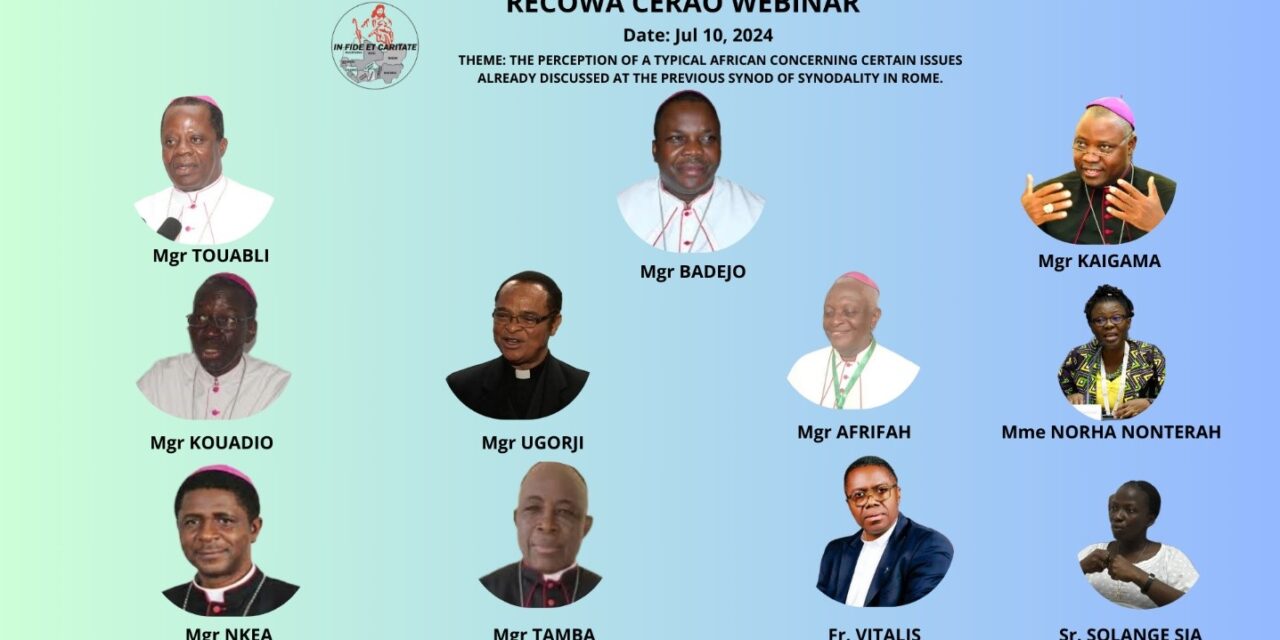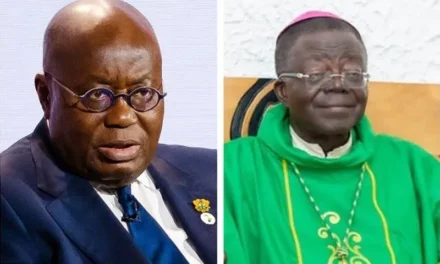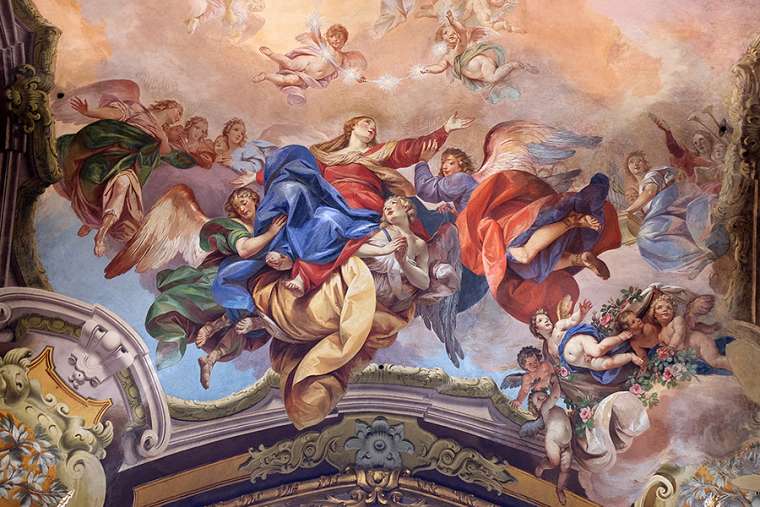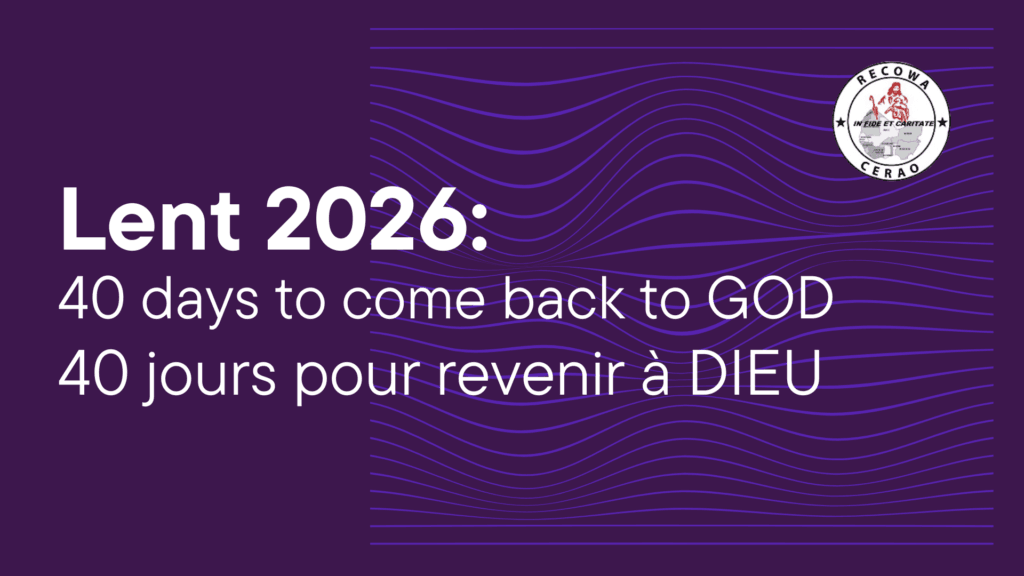
On this day, precisely a week ago, we organized an epoch-making Webinar. Today, the RECOWACERAO NEWS Crew has decided to begin the publications. This battery of researchers intends to give a detailed publication of the Webinar since some of us were not opportune to participate in this conference. The publication will come in segments beginning from the beginning of the Webinar.
The RECOWA-CERAO WEBINAR gathering of great minds which took place on the 10th of July 2024 began at exactly 2:50 pm in Ivory Coast. The Moderator who was also the Director of Media and Communications of RECOWA-CERAO introduced and presented the participants at this conference. The opening prayer and opening remarks were taken by the first Vice president of the organization, Bishop Joseph Kwaku Afrifah-Agyekum. In his opening prayers, he thanked God for bringing us together to reflect on the Synod of Synodality. He thanked God for His compassion in keeping us alive and thanked Him more for the gift of our mother-Church. He thanked God also for the initiative He has given to the Holy Father to convoke this solemn assembly.
In his opening speech, bishop Joseph graciously welcomed participants to this Zoom meeting. He harped on the INSTRUMENTUM LABORIS which served as the basis for this synod of synodality in the universal Church. He extolled the magnanimity of the Holy Father, who invited both Catholics and non-Catholics to this synod. He emphasized the latest gathering in Nairobi where Theologians, priests, Catholics, and non-Catholics from our African continent met earlier to strategize and to find out how best they could also present the voice of Africa in the universal Church. In the synod of synodality therefore, the Holy Father is reminding us to go for a deeper understanding and also reflection and meditation on a new life in the church, allowing the Holy Spirit to be our guide. He prayed for a successful deliberation in the next couple of months specifically in October this year when there is going to be the second session of the synod which is still going to continue with the work that was started last year. He added that it was Only Yesterday which was Tuesday, the 9th day of July that the committee or the team in Rome published the new INSTRUMENTUM LABORIS on the same theme, Church, communion, participation, and Mission. He adjudged that the current Zoom meeting would go a long way in preparing us to represent the continent adequately so that the thoughts of Africa would be heard loud and clear. Finally, he prayed and wished the participants in this Zoom meeting a very fruitful deliberation.
At this point, the Secretary-General, Fr. Vitalis Chinedu Anaehobi gave a background to the Theme under review. He took us on a historical journey indicating that the Synod of Synodality has gone a long way from its inauguration on the 9th of October 2021 to the present moment of interception between the 16th Ordinary Assembly of the Synod of Bishops. He pointed out that the synod members are coming back to the Vatican from September 30th to 27th of October 2024 for the final lap of this long-distance race. He revealed that with the journey so far, the Church in Africa has come to understand itself as a Church on a Mission.
He opined that in this context we refer to any specific act in the Church as the family of God that put in practice values and attitudes of consultation and deliberation in both formal and informal ways in the church. It also refers to a conscious effort to create space for loving and respectful encounters and a participative engagement in the Church by everyone. Therefore, in this capacious space of inclusive love, the voices of everyone in the Church should be heard and their concerns received by the entire community. Above all, the Lamentations of the people and those who are hurting will go a long way in shaping the Church’s Evangelical action as well as its pastoral dimensions, decisions, and ministries of accomplishment modeled after the priorities and the practices of our Lord Jesus Christ. According to the synthesis report of the first phase of the synodality, we all can be understood as Christians walking in communion with Christ towards the kingdom along with the whole of humanity. The synodal orientation is towards Mission and its practice involves gathering in assembly at each level of ecclesial life. It involves reciprocal listening dialogue Community, discernment, and a creation of consensus as an expression that renders Christ present in the Holy Spirit, each making decisions following their responsibility. It is about making everyone count and feel responsible for the life and mission of the Church put together. The Church in Africa sees itself as a family of God. It is this family of God that is also called in the present time to become a Church in Mission. Fr. Vitalis stressed that as a family, the care of the poor is already central to our African family setup.
The question that the panelists will try to grapple with is; what structures or systems must the Church in Africa foster to fully care for the poor in her midst? It has been established that synodality promotes Co-responsibility based on the common baptism of all the faithful. Another question that begged for a definite answer is, how will the church in Africa Foster this idea of co-responsibility which even though new in perspective is not new to the church in Africa. Fr Anaehobi pointed out that our Focus therefore in this webinar will be to examine some of the topics that attracted more discussion than others. Here we have issues like women’s ordination, the poor, and the marginalized plus Unity of Doctrine which entails reconciling Love and Truth. These points were treated as burning issues. He indicated that participants across the continents were eager to air their views on such subjects.
There are some other issues which, though important attracted less attention from across the continent often because the issues raised concern one continent more than the other. It is along this line that our webinar today will help us to focus more on issues that are African specifically without losing sight of the global dimension of synodality which the Universal Church wishes to promote in bringing together those who have played active role in the ongoing process. Fr. Vitalis indicated that we intend through their insight and experiences to facilitate the awareness of the new family which is the church. This is a Church in which each member is a stakeholder and not an outsider. He ended with a note of thanks and wishing the participants a fruitful deliberation.
In his contribution, Archbishop Tamba Edward Charles informed participants that the figure of the bishop is presented as very vital in the process of making the local church, or rather the bishop plays a vital role in animating the process of synodality in the local church. The reason is that the bishop according to the ecclesiology of Vatican 2 is the center of unity of his particular church. That does not mean that he is the paramount Chief who decides everything but he coordinates his local Church in such a way that all the wheels like a in a bicycle or a motorbike function well. He has to provide the needed role of an overseer so to speak. Therefore, in the process of making a particular Church the role of the bishop assumes great importance. However, the first thing is that the bishop should know what is a Church. He should be familiar with the documents published so far both locally, continental, and of course at the level of the universal church.
In the spirit of synodality, a bishop like a good shepherd should be able to lead his flock in the dark direction of the world and the very lifestyle of the bishop will go a long way to convince the people of the local church or the diocese so to speak that sodality is a serious business. He added that the bishop cannot say one thing and then do another, thanks to the Vatican 2 document which made it possible that we already have structures that are vital to the life and mission of the diocesan church or particular Church. In the local church for example we have consultative bodies like the College of Consultors the Presbyterian Council, the Diocesan Pastoral Council and so many other structures that are already put in place. Unfortunately, some of these vital organs in the Church are still dominated by us ordained ministers. Therefore, at the first session of the synod in Rome, we talked about why the membership of these bodies does not incorporate competent lay persons, men and women so that their own views could be heard regarding the life and mission of the church. However, all that will depend largely. Archbishop Charles decided to use one expression which was used by a Polish young lady who is now in the USA. She described Bishops as the gatekeepers during the first session of the synod. Putting himself in that picture, he accepted the appellation and described himself as a gatekeeper of the grace of God.
He underlined the fact that the bishop has the role of creating space for everyone whether they are ordained or they are not, whether they are men or women, young and old so that they could all put their gifts, their charisms, their talents at the service of the life and mission of the church. He underscored this point as a cardinal role of a bishop. In summary, the bishop stands at the center as Vatican 2 says in Lumen Gentium. He is at the center of unity of his local church and because of that is also responsible for animating and making sure that all sections of this church are active and they are participating in the life of the universal Church. This for him is what synodality is all about. It is about each person contributing according to their state in the Church. Synodality does not mean leveling out everyone, rather the ordained ministers will be ordained ministers, the religious remain religious according to their vocation, and the faithful have their specific mission in the church and in the world. The riddle, synodality moved to solve is, how we could all work together, listening to each other and allowing cross-feralization so that this Church becomes more participatory and more missionary. It is in this brand of Church that a bishop plays his destined active role
Archbishop Tamba went further mention that the bishop is not just limited to his diocese, rather he should also be open to others following the dictates of the documents of the church which said that the bishop should have solicitude care, not legal Authority but concern for the welfare of the whole church and the other particular churches, especially in the same region. Therefore, an institution like our RECOWA-CERAO becomes very important because at that level the bishops listen to others his fellow Bishops even priest as they narrate their pastoral experiences and he learns from them. He also contributes with his own experience and others learn from it. The archbishop emphatically established that no bishop should function like an island. Everyone should listen and learn from everyone. Their successes and their challenges will go a long way in strengthening each other thereby making his own particular Church more sensible. He concluded by thanking every participant and promised to intervene wherever and whenever he is called upon.
- CATHOLIC ARCHBISHOP IN GHANA HAILS POPE LEO XIV AS GOD’S GIFT - 23 mai 2025
- POPE LEO XIV TO APPROVE CANONIZATIONS - 22 mai 2025
- THE EVOLUTION OF PAPAL TRANSPORTATION - 20 mai 2025







